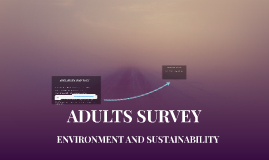Quality Survey
Transcript: Introduction Purpose The purpose of this survey is to evaluate the quality of education in institutions hosting Syrian refugee students and to provide actionable insights for further interventions. Objectives Background This project, funded by the European Union, assesses the impact of educational programs implemented by the Ministry of Education to address the Syrian refugee crisis, reflecting the ongoing efforts to improve educational standards. The objectives include capacity building for the Education Quality Assessment Unit (EQAU), identifying strengths and weaknesses, and evaluating the effectiveness of double-shift schools in catering to Syrian students. Methodology The survey utilizes a combination of document study, data analysis, field visits, and stakeholder engagement to gather comprehensive insights, ensuring a thorough assessment of educational quality. Quality Survey Findings Findings of the Education Quality Survey for 30 Centres and Schools School Performance Quality Indicators Schools have exhibited varied performance levels, with 67% rated as adequate or better by December 2018. Performance categories range from high achievers in bands A and B to those requiring improvement, highlighting the need for targeted support. Quality indicators are derived from a comprehensive assessment framework measuring teaching effectiveness, student engagement, and resource utilization. The metrics include the Quality Performance Score (QPS), with a significant correlation observed between teaching quality and student outcomes. Student Development Leadership Effectiveness Effective leadership is crucial for fostering an environment that promotes educational quality. The survey indicates that schools with coherent leadership strategies exhibit higher student performance and engagement, underscoring the role of management in educational success. The assessment underscores the importance of emotional and academic support for students, particularly emphasizing the need for a robust care system. Students reported a positive school experience which correlates with their overall development and engagement levels. Recommendations Conclusion Areas for Improvement Key areas identified for improvement include attendance rates, specifically on Saturdays, which affect overall student performance. Enhancing the quality of teaching and learning methods will also contribute to better student outcomes. Encouraging parental engagement and student participation in school activities is vital for fostering a supportive educational environment. Summary of Findings Implications for Policy The survey highlighted key findings in quality education indicators, revealing strengths in teaching practices but underscoring significant areas needing improvement, particularly in student engagement and leadership effectiveness. Schools reported an overall attendance rate above 85%, but challenges remain in consistency, particularly during Saturday classes. The findings necessitate actionable policy revisions to reinforce educational frameworks, particularly focusing on enhancing teacher training and incorporating effective resources for refugee students. Addressing attendance irregularities and fostering community involvement are vital for sustaining quality improvements. Future Interventions Enhancements in Teaching Enhancements in teaching practices are required to cater to varying student abilities and learning styles. Promoting the use of interactive and student-centered approaches will significantly contribute to increased engagement and motivation among learners, thereby improving academic performance. Future interventions should focus on sustaining in-house remedial classes to bridge gaps in core subjects. Implementing comprehensive training programs for teachers will enhance instructional delivery, ensuring tailored support for diverse student needs, including those of Syrian refugees. Acknowledgments Next Steps Focus on implementing robust strategies to address the identified gaps, particularly in teacher performance and student support systems. Continuous monitoring and evaluation will be essential in measuring progress and ensuring accountability among educators and management. Gratitude is extended to AECOM International Development Europe and the European Union for their funding and support. Appreciation is also due to all educators, students, and stakeholders who participated in the survey, providing valuable insights that shaped the findings. Stakeholder Engagement Engaging all stakeholders, including parents, teachers, and community members, is crucial for fostering a collaborative educational environment. Establishing regular communication channels and feedback systems will ensure that the voices of all stakeholders are heard and incorporated into decision-making processes.

















